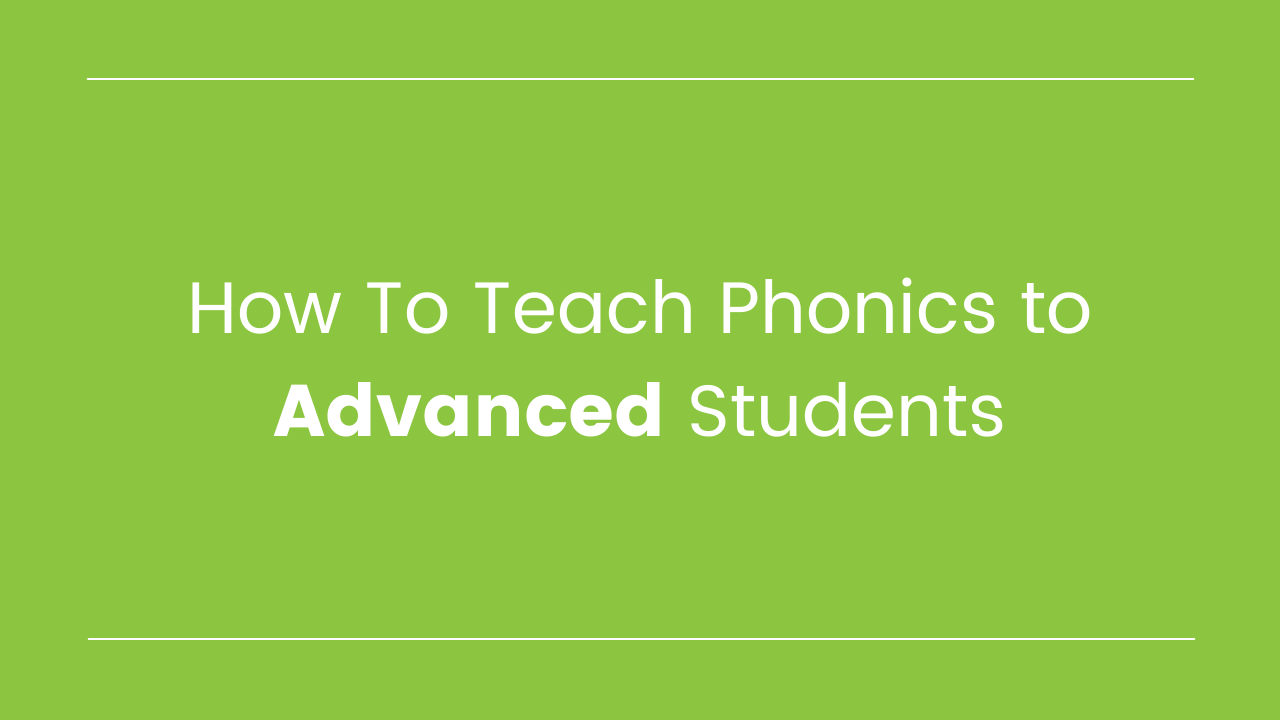
How To Teach Phonics to Advanced Students
Does phonics instruction seem "too easy" for your advanced readers?
Well, guess what? It's not - not when you have the right type of lessons, anyway!
In this post, we'll explore what to do with your advanced students in the area of phonics, and how to provide instruction that truly meets their needs.
Establishing a Baseline
First and foremost, you'll need to know exactly what your advanced students do and do not know.
A phonics diagnostic assessment like this free one will help you pinpoint areas of strength and weakness.
And the results may surprise you!
Often, children are able to read words long before they're able to spell them. So even if, for example, a students is proficient in reading vowel team words, it doesn't necessarily mean that the student can also spell them.
That free phonics diagnostic assessment will give you a good picture of what to work on with students, especially as far as spelling goes.
Working on Spelling
The diagnostic assessment will likely reveal word patterns that your advanced students need to practice spelling.
If not, seek out other resources, like spelling inventories for older students, or the scope and sequence for higher grade levels. Your student(s) may be ready to learn Greek and Latin roots and work on morphology.
You can also incorporate lots of vocabulary work, so students are working with the meaning of words as well. (All students need this, but you can sometimes spend even more time on vocabulary with students who are quickly mastering spelling skills.)
Working on Word Reading
As discussed above, children are typically able to read words before they can spell them.
So for advanced students, it's typically not difficult for them to read the types of words they're working on in spelling.
To challenge these students, consider incorporating more multisyllabic word reading.
If, for example, you're working with the entire class on glued sounds (like "sing" or "bank"), your advanced students might work on 2-syllable words with glued sounds like...
- bankrupt
- hamstring
Those words above still have glued sounds, but they have 2 syllables, rather than 1. This is a great challenge for advanced students - and you can extend the challenge to 3 syllable or even 4 syllable words as they're ready!
Conclusion
Nearly all students need word spelling and word reading practice - we just have to find work that's at their level.
Don't forget to begin with the free phonics diagnostic assessment - click this link to get started!




